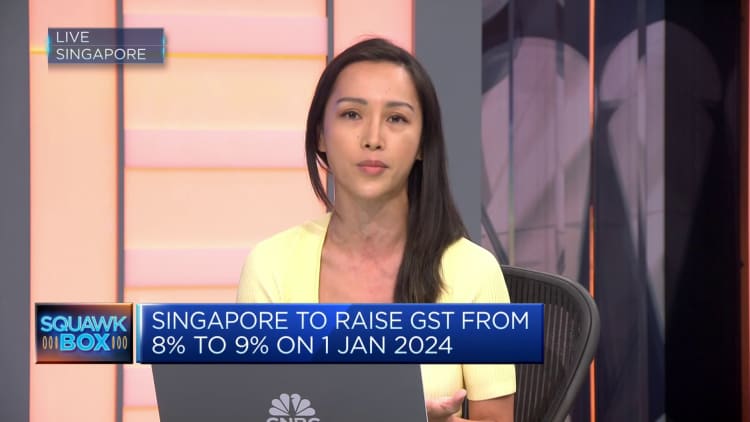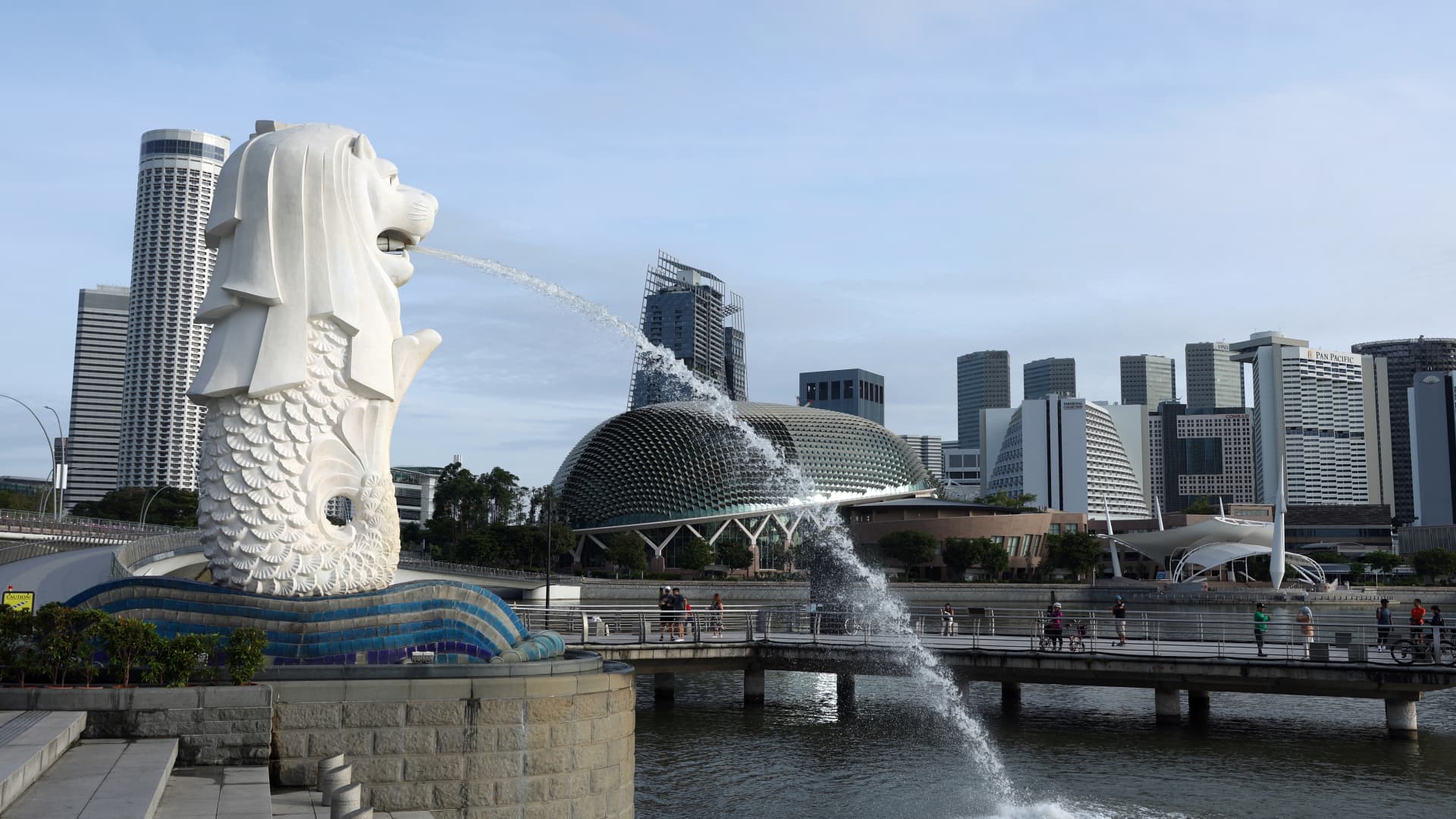The Merlion statue in Singapore, on Tuesday, Jan. 3, 2023. Photographer: Lionel Ng/Bloomberg via Getty Images
Lionel Ng | Bloomberg | Getty Images
Singapore’s central bank left its policy unchanged on Monday in its first quarterly monetary policy decision of 2024, as expected.
The Monetary Authority of Singapore said it will also maintain its exchange rate policy band known as the Singapore dollar nominal effective exchange rate or S$NEER.
“MAS will closely monitor global and domestic economic developments, and remain vigilant to risks to inflation and growth,” the central bank said in a policy statement.
Unlike other central banks that tweak their domestic lending rates, MAS opts to tweak the exchange rates of its currency. The central bank strengthens or weakens its currency against those of its main trading partners, thus effectively setting the S$NEER. The exact exchange rate is not set, rather the S$NEER can move within the set policy band, the precise levels of which are not disclosed.
Beginning this year, MAS shifted from a twice a year review of its monetary policy to a quarterly issue of statements. It noted that it will releasing statements in January, April, July, and October.

The central bank also said it expects the country’s gross domestic product to improve in 2024, estimating growth between 1% and 3%. Preliminary data in early January showed Singapore’s economy grew 1.2% last year, but clocked an increase of 2.8% on a year-on-year basis in the fourth quarter, its fastest pace for the year.
“Barring any further global shocks, the Singapore economy is expected to strengthen in 2024, with growth becoming more broad-based. MAS Core Inflation is likely to remain elevated in the earlier part of the year, but should decline gradually and step down by Q4, before falling further next year,” the MAS said.
The MAS said core inflation is expected to rise in the current quarter “due in part to the one-off impact of the 1%-point hike in the GST from January this year.” Singapore raised its goods and services tax by one percentage point on Jan. 1.
The central bank estimates core inflation to average between 2.5% and 3.5% in 2024, unchanged from its October forecast. Excluding the impact of the GST hike, core inflation is projected to average between 1.5% and 2.5%.

Ahead of the MAS decision, Goldman Sachs noted any significant spike in global commodity prices or higher business costs could pose as a risk to inflation, as well as the the GST hike.
When will the MAS ease?
Economists will monitor for clues on when Singapore’s central bank will begin to loosen monetary policy.
Singapore’s central bank ended its policy tightening cycle in April after five consecutive decisions to tighten.
While inflation has shown signs of easing throughout 2023, core inflation remains sticky.
At its December meeting, the U.S. Federal Reserve projected at least three interest rate cuts for 2024. Central banks around the world often follow the lead of the Fed and economists will be monitoring MAS decisions for insight as to when it could begin loosening its own policy.
“Our base case is for the MAS to start easing in April, at the earliest,” HSBC’s ASEAN economist Yun Liu told CNBC’s “Squawk Box Asia.”
But Liu said there were still risks that could delay the central bank’s easing until later this year “and one of them is really the core inflation.”
“I think it really reminds the market that we’re still not out of the woods yet … and there are actually more imminent upside risks to inflation in Singapore if we think about the one percentage GST hike,” Liu said.
2024 budget
Singapore will announce its budget for 2024 on Feb. 16 and economists will look for indications of any shift in government priorities.
Singapore has rolled out near-term support support measures to deal with higher costs of living and to ease inflation. HSBC expects the new budget to address longer-term priorities, such as upskilling the labor force and boosting innovation.

